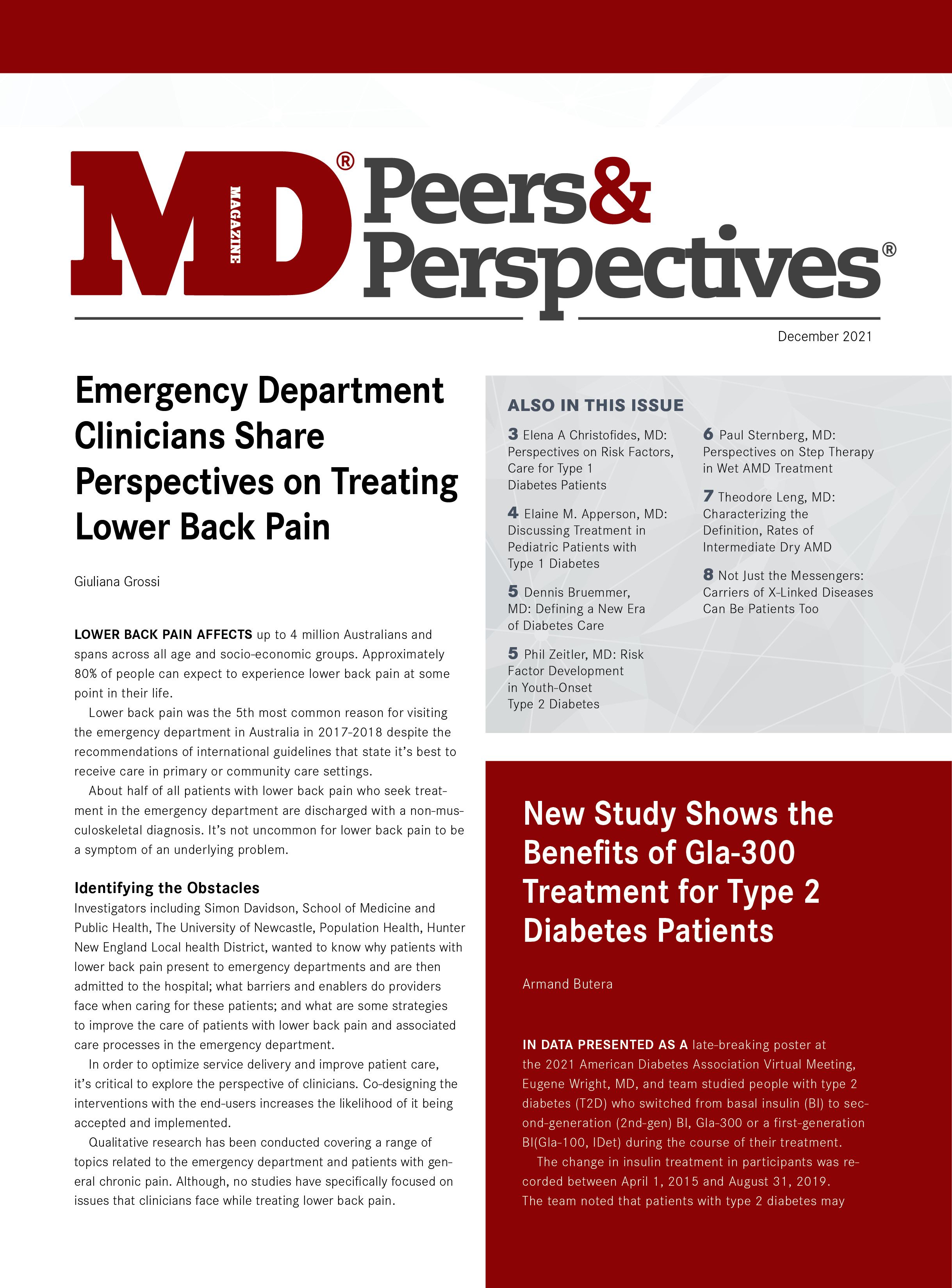Publication
Video
Peers & Perspectives®
Dennis Bruemmer, MD: Defining a New Era of Diabetes Care
Author(s):
Dennis Bruemmer, MD discusses new agents and perspectives on care in treating patients with type 2 diabetes at high risk of CV, renal complications.
At the 2021 American Diabetes Association Virtual Meeting, discussions were held surrounding the larger beneficial use of GLP-1 receptor agonists and SGLT2 inhibitors in patients with Type 2 Diabetes (T2D).
In an interview with HCPLive, Dennis Bruemmer, MD, Cleveland Clinic, discussed the use of these agents in patients with T2D at high risk of both cardiovascular and renal complications.
He noted both classes define a new era for diabetes and cardiovascular management, with extended indications ranging from CV event reduction to prevention of chronic kidney disease (CKD).
"The cardiovascular endocrinology spectrum of indications for both classes has been widely expanded," Bruemmer said. "And as you're well aware, these are comorbidities that frequently coexist in patients with diabetes. So we can have, essentially two classes of drugs that are quite appropriate for the vast majority of patients."
Bruemmer also spoke on the possible slow adoption of these agents in the inpatient setting, noting the complications of diabetes management, slow adaptation of new habits for physicians, and the newness of some of these agents, such as semaglutide.
"I think I think there's a lot of work to do for us in terms of physician effort, patient education, discussion with payers, politics around medications, and I think time will tell, I think we're getting better," Bruemmer said. "And these medications are being used more by additional sub specialties. I think cardiologists, for example, become quite comfortable in writing prescriptions for SGLT2 inhibitors in patients with heart failures, they have taken that on very quickly."
Bruemmer observed that there is a need in treatment for solving these overarching health problems in the country, including the prevalence of obesity and prediabetes.
He noted that physicians need to be more therapeutically alert and aggressive in controlling risk factors, which will ultimately benefit the patient.
"I think we need to change the way we we educate, teach, and feed the nation," Bruemmer said. "I think we need to aim for better coverage, we need to aim for preventive care and not reactive care."





